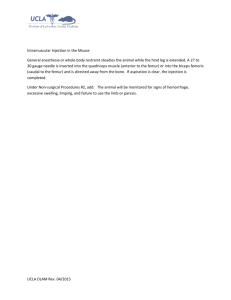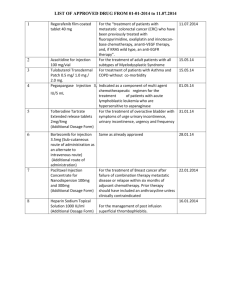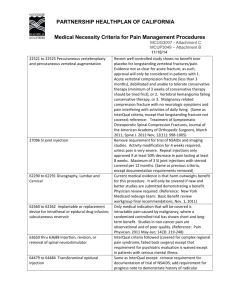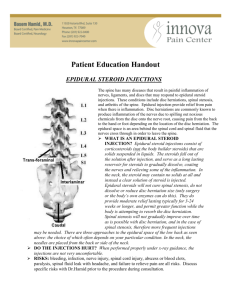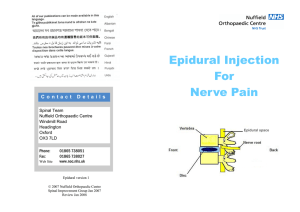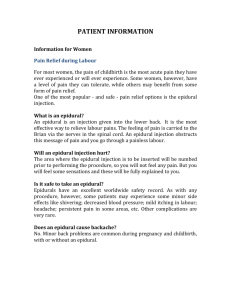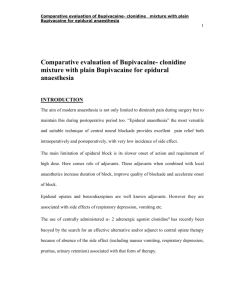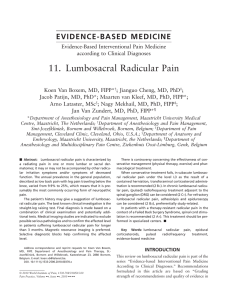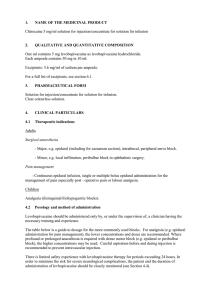Nerve Blocks lab 9
advertisement
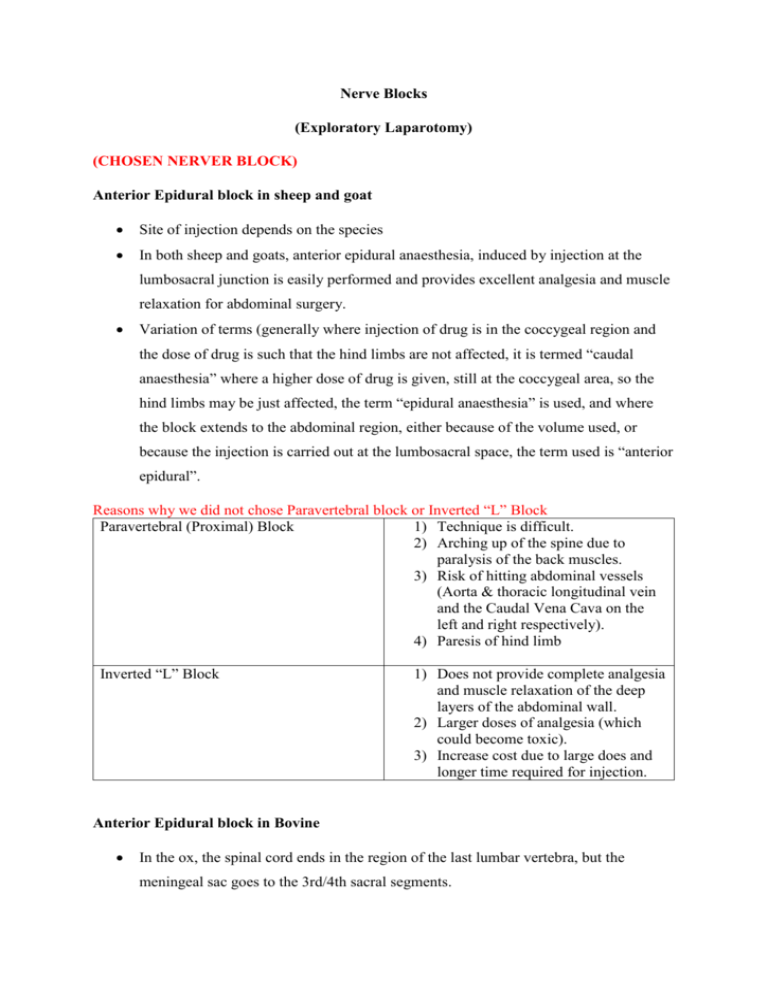
Nerve Blocks (Exploratory Laparotomy) (CHOSEN NERVER BLOCK) Anterior Epidural block in sheep and goat Site of injection depends on the species In both sheep and goats, anterior epidural anaesthesia, induced by injection at the lumbosacral junction is easily performed and provides excellent analgesia and muscle relaxation for abdominal surgery. Variation of terms (generally where injection of drug is in the coccygeal region and the dose of drug is such that the hind limbs are not affected, it is termed “caudal anaesthesia” where a higher dose of drug is given, still at the coccygeal area, so the hind limbs may be just affected, the term “epidural anaesthesia” is used, and where the block extends to the abdominal region, either because of the volume used, or because the injection is carried out at the lumbosacral space, the term used is “anterior epidural”. Reasons why we did not chose Paravertebral block or Inverted “L” Block Paravertebral (Proximal) Block 1) Technique is difficult. 2) Arching up of the spine due to paralysis of the back muscles. 3) Risk of hitting abdominal vessels (Aorta & thoracic longitudinal vein and the Caudal Vena Cava on the left and right respectively). 4) Paresis of hind limb Inverted “L” Block 1) Does not provide complete analgesia and muscle relaxation of the deep layers of the abdominal wall. 2) Larger doses of analgesia (which could become toxic). 3) Increase cost due to large does and longer time required for injection. Anterior Epidural block in Bovine In the ox, the spinal cord ends in the region of the last lumbar vertebra, but the meningeal sac goes to the 3rd/4th sacral segments. The injection site normally used is between the coccygeal C1 and C2 (located by raising tail in “pump handle” fashion, the first obvious articulation behind the sacrum being C1 /C2) Larger doses will produce increasingly anterior effects. Injection of local anaesthetics can be carried out at the lumbosacral junction in order to produce an anterior block with less anaesthetic. However, there is a danger of accidental subarachnoid injection. Dangers of spinal and epidural block Infection- Careful sterile precautions (good clipping and scrubbing) Irritation causing spinal damage (most likely with subarachnoid). Hind limb motor paralysis (problem in large animals, acceptable in small). Hypotension - most likely with an anterior block. Where this is being done fluid therapy or inotropes should be available to maintain blood pressure. Respiratory paralysis (only if massive overdose of local analgesic used) (Desensitisation of phrenic nerve which supplies the diaphragm).

